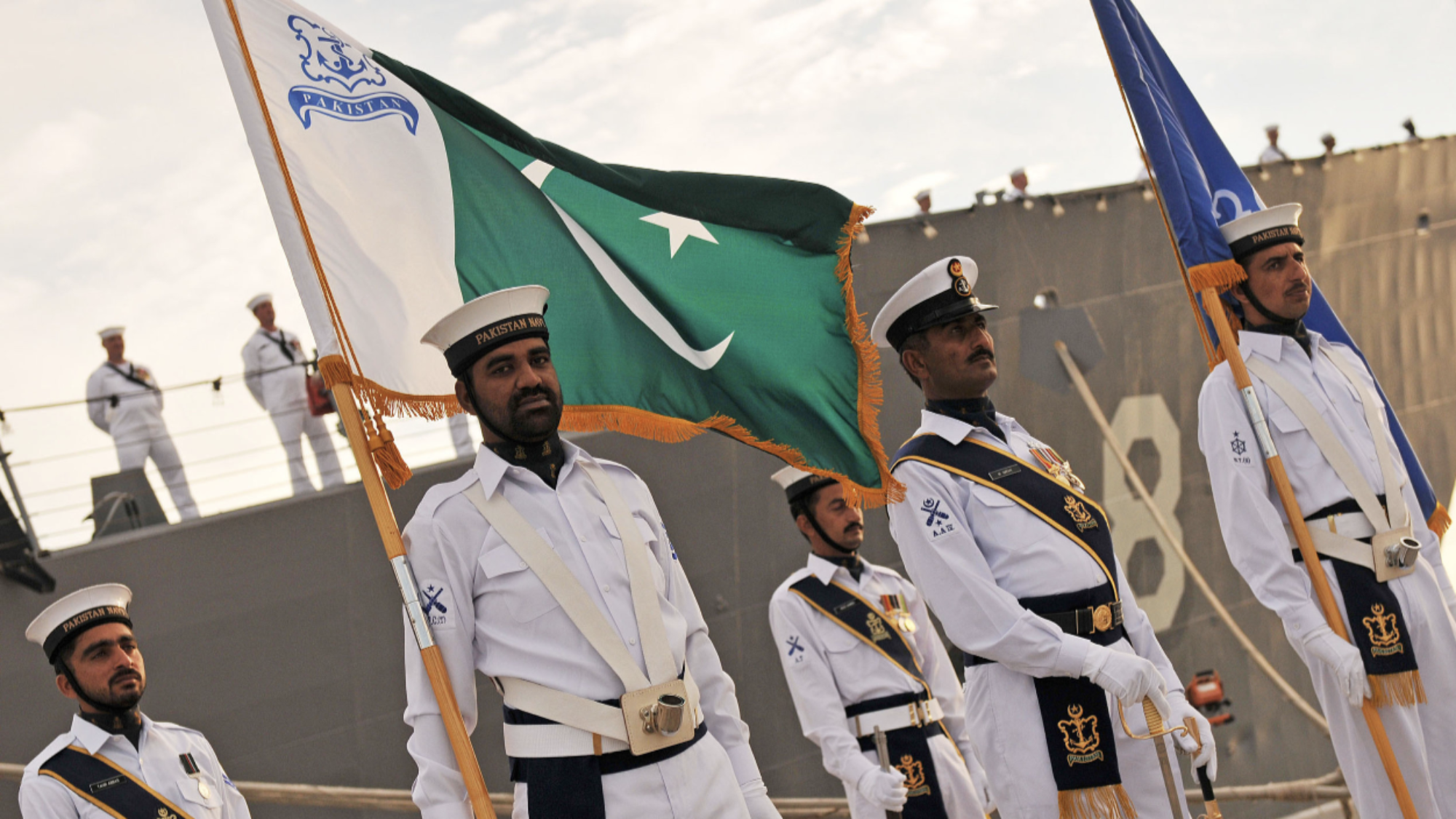
Title: The U.S.-Pakistan Relationship with Ambassador Aizaz Ahmad Chaudhry
On October 10th, the Ambassador Insider Series, hosted by The Washington Diplomat at the Willard InterContinental Washington Hotel, welcomed Pakistani Ambassador to the United States Aizaz Ahmad Chaudhry. Following the event, Five Minutes with an Expert met with the ambassador, a seasoned veteran who has tackled numerous issues firsthand during his 36-year diplomatic career, to talk about the state of Pakistan’s relations with the United States, India, Afghanistan and the world, and about the latest security, economic and political developments in his homeland.
GJIA: From your time as a Foreign Secretary to now being the Pakistani Ambassador, what are the major changes you’ve seen in the relationship between Pakistan and the United States?
AAC: Well, Pakistan and the United States go far back in time. We have been interacting with each other for 70 years, and during the 50s, 60s, 80s and 2000s, we cooperated very closely. I think the two countries are connected in multiple areas and domains – and both have benefitted, in my humble assessment, when we worked together.
Yes, we have also had our divergences and our differences of opinion. On the war against terrorism we have again cooperated, but towards the end of this war, when we are witnessing instability in Afghanistan, I think there is need for more conversations between the two countries to find a solution to the instability in Afghanistan.
At the Council of Foreign Relations on Sept 28th, Prime Minister Abbasi mentioned that Pakistan will not tolerate the India’s role in the war against Afghanistan. On the same day, the Prime Minister met with Vice President Mike Pence. Can you expand on why Pakistan is opposed to Indian participation and if the United States has made any response to this demand?
India is playing the role of the spoiler in Afghanistan. India is using the soil of Afghanistan to create instability in Pakistan and to create a double-front situation for Pakistan. India is using the soil of Afghanistan to disallow the reconciliation process in Afghanistan to succeed. So, we do not think that India should have any military or political role in Afghanistan.
Around two weeks ago, the Trump administration threw its weight behind India in opposing the China-Pakistan Economic Corridor (CPEC) and the overall One Belt One Road Initiative. What is the Pakistani Government’s stance on this? Does the U.S.’s support for India regarding CPEC hinder the working U.S.-Pakistan relationship in any way?
The China-Pakistan Economic Corridor is for the good and welfare of the people of Pakistan, the people of western China and, in fact, the people of the whole region. Many countries, including those in Central Asia, as well as those in our neighborhood, will benefit from this. There is no reason that it should be viewed in a negative light by anyone. We do hope that the United States will also see the benefit that will accrue for the people of the region from this project.
How can the United States and Pakistan work together to fight terrorism in the United States?
Every country has the responsibility to fight terrorism in its own territory. Pakistan is doing that effectively, the United States is doing that within its own country very effectively. International cooperation also happens, like intelligence sharing, which can always and has always happened.
Now that the 70th anniversary of Pakistan’s independence has passed, what are Pakistan’s goals in expanding the United States-Pakistan relationship, not just militarily, but economically?
I think there are a number of failures on which we can work together. For example, our job against terrorism is not over; we need to cooperate to continue this fight until we win. Secondly, we need to stabilize Afghanistan – the United States for its own reasons, us [Pakistan] for our own reasons – but we need to stabilize Afghanistan. We need to fight Daesh together because Daesh could be a threat that is now making its way into Afghanistan. We also need to cooperate in multiple areas in the economic domain, in the investment domain, in trade, the social sector, in academia and so on and so forth. There are a large number of areas in which these countries can work together and should work together.
This transcript has been lightly edited for clarity and length.
. . .
Ambassador Aizaz Ahmad Chaudhry is currently the Pakistani Ambassador to the United States. He has had a 36-year diplomatic career, previously serving as Foreign Secretary of Pakistan from 2013 to 2017, as well as spokesman of the Foreign Office. He has also served as Ambassador to the Netherlands and been posted to Tehran, Cairo and Doha. Chaudhry holds a B.S. from University of the Punjab and a M.A. in International Relations from the Fletcher School of Law and Diplomacy at Tufts University.